zu |she/her| hs student! |class of 2021 |infj-t| ( ⸝⸝•ᴗ•⸝⸝ )੭⁾⁾
Don't wanna be here? Send us removal request.
Text
forest referral code
hello!
if you’ve yet to download forest and are looking to please use my referral code! we both get rewarded when you do :D
my code is HQ3PAJSG
6 notes
·
View notes
Photo
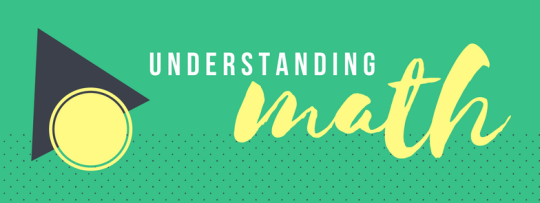
Algebra
Masterposts
Advice and tools by @thegrangersapprentice
Tips and links by @stemnerd3
Resource masterpost by @etudiance
Logarithms by @allydsgn
Graph shapes by @codeorg
Resources
Algebra II Homework Help
Khan Academy
ProfRobBob
Math Worksheets Land Printables
MathDrills Worksheets
Algebra Calculator
Mathisfun
Purplemath
Mathway’s Algebra Calculator
Geometry & Trigonometry
Masterposts
Resource masterpost by @etudiance
Some tips by @sundayscholar
Advice if you suck at geometry by @ballpenned
Cool trig gif post
Pythagorean formula explained
Resources
Hippocampus
Khan Academy (and trig only)
Geometry Dictionary
MathForum Info on Proofs
Geometry4Everyone
Math Fortress
Brightstorm
ProfRobBob (and trig only!)
Precalculus
Masterposts
Resource masterpost by @etudiance
Final precalculus review by @studteaing
Precalculus review by @productivityjunction
Rules for transforming functions
Resources
Precalculus Tips
Handouts and Notes
UC Irvine Videos
Huge cheat sheet
Khan Academy
Trig identity hexagon
ProfRobBob
Precalc class on EdX
Cheat sheet for dummies
Calculus
Masterposts
How to study calculus by @sundayscholar
AB calculus resources by @intellectus (#spon oops)
Studying for college math (emphasis on calculus) by @hexaneandheels
AP calculus tips by @kingdomstudies
Guide to calculus BC by @scolasticus
Resources
How to Succeed in Calculus
Krista King (the b e s t)
Calc AB Study Guide
CliffsNotes Calculus
Paul’s Calculus Notes
WOWMath Worked Free Response
Mr. Calculus
Cool Calc Cheat Sheet
University of Houston Calc Guide
ProfRobBob
Statistics
Masterposts
How to Study Statistics by @study-well
Scanned stats notes by @mildstudies
AP by Michelle
Killer stats notes and pdfs by @communitystudy
Resources
1st Semester Study Guide
Formula Sheet
AP Stats Tutorial
CourseNotes
Another formula sheet
ProfRobBob
Online statistics calculator
CourseNotes
General
Great tips by @hexaneandheels
Process of studying math by @doitforthea
More study tips by @study-hack
Amazing math masterpost by @studybuzz
Tips for studying math by @studyign
This incredible resource blog: @themathblrs
Best of luck with your mathematics!! Hopefully seeing this post is a good sine for the future.
(You can see my other original content here or request a post here!)
8K notes
·
View notes
Photo
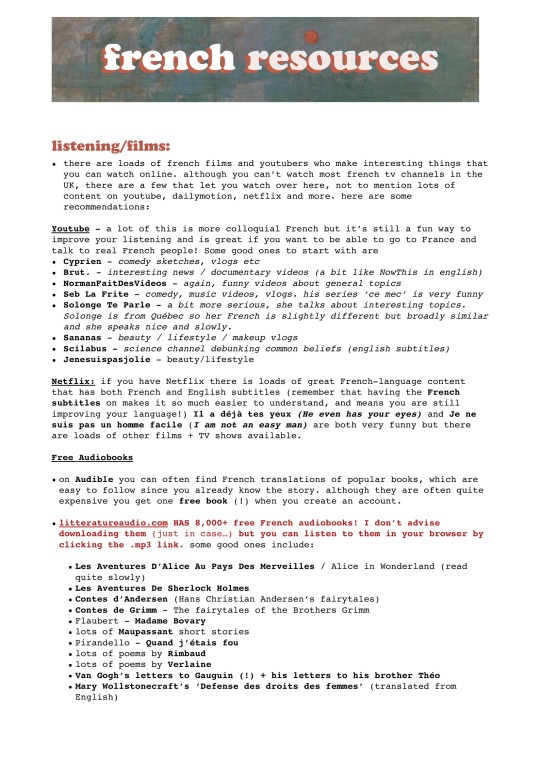
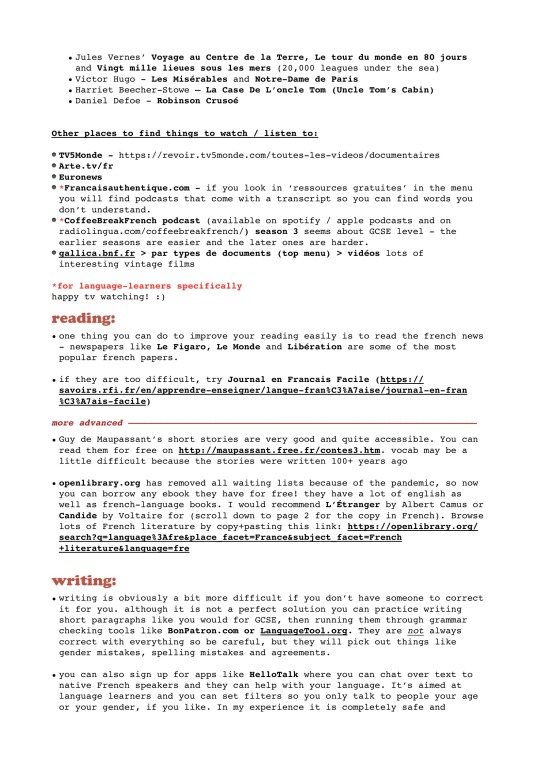
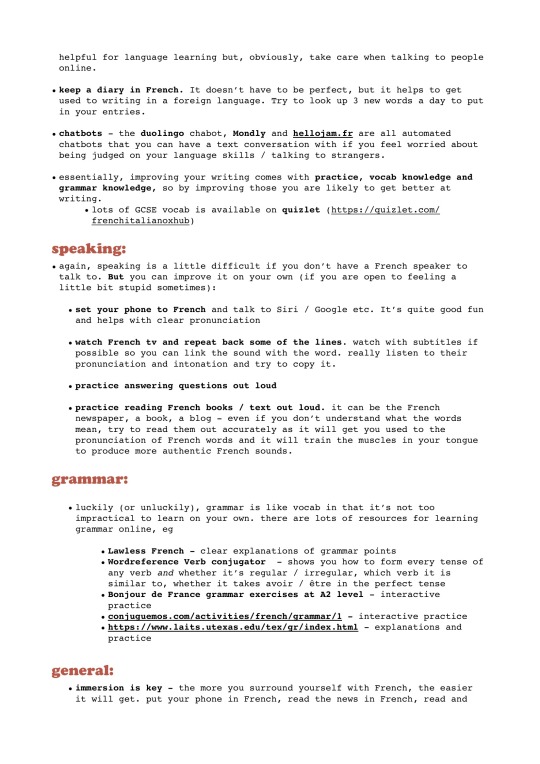
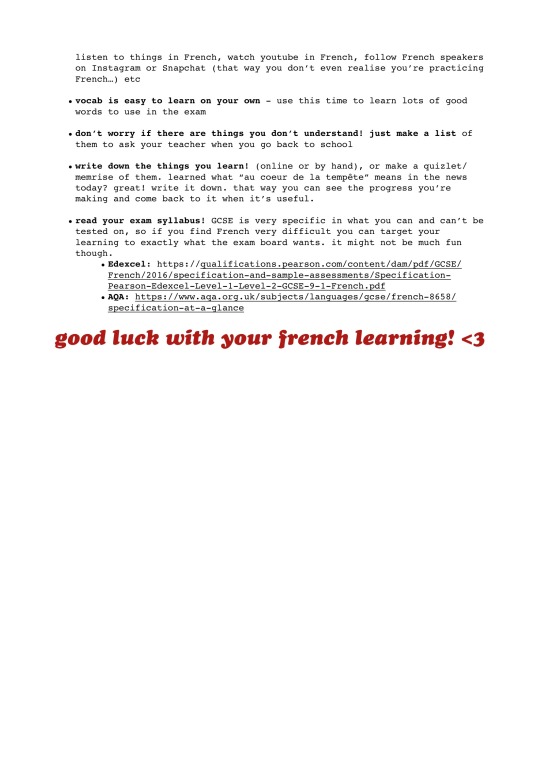
compiling some resources for all those students who have to keep up on their own <3 this was originally meant for GCSE / A2 language level but is helpful for all i think
3K notes
·
View notes
Photo
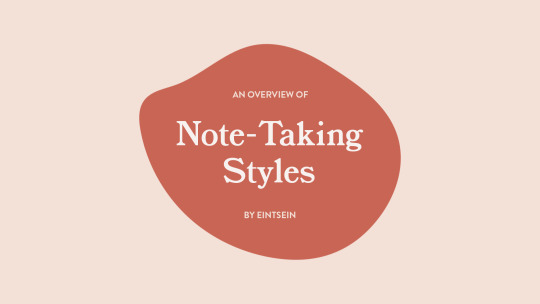

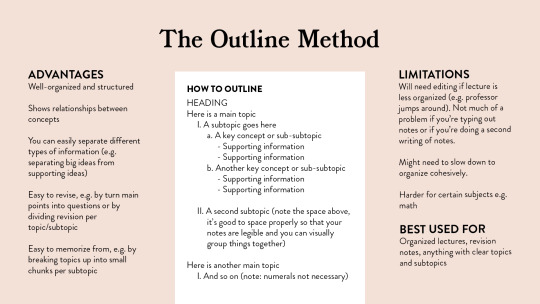
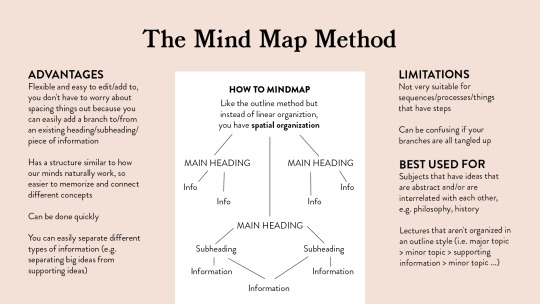

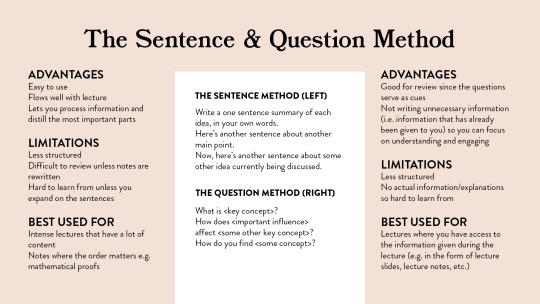
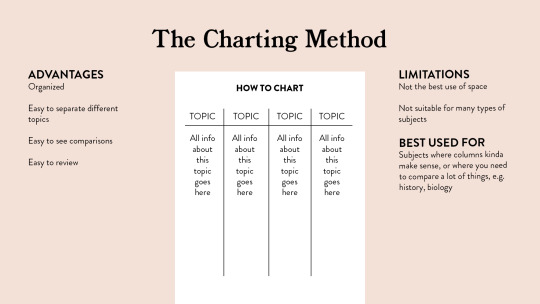


An Overview of Note-Taking Styles
Note-taking is one of the most essential skills a student should master. It allows you to record and review information to be used in the future. But what’s the best way to do so? Here’s an overview of note-taking styles that can help you maximize your learning!
56K notes
·
View notes
Text
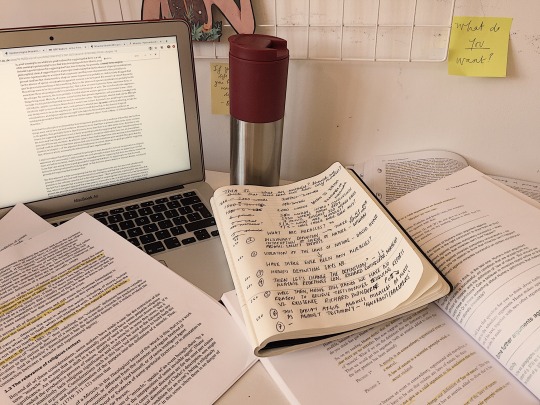

7.12.19 // these pictures are from earlier in this week when I was writing an essay on David Hume’s case against miracles. Seeing as I just made a post about how I write essays, here are the pictures of me frantically worrying about this one in particular (tap for better quality idk tumblr does this to me)
7K notes
·
View notes
Photo
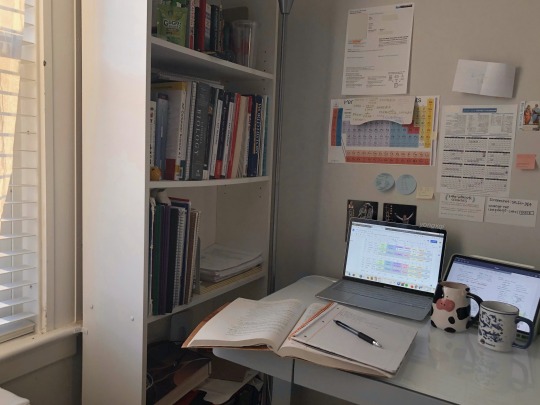
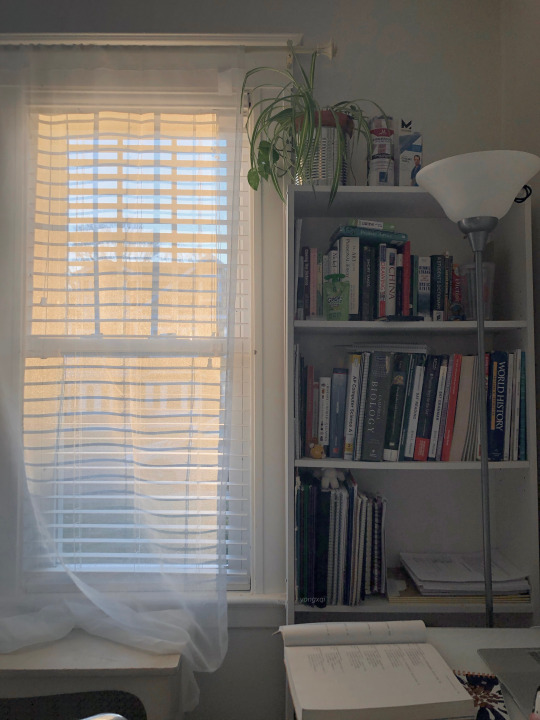
november 24, 2020 [click for hq]
i have a very cluttered wall which dons a period table, a yearly calendar, a Vatican museum ticket, fencing trading cards, keyboard shortcuts (?) and some surprisingly sticky sticky notes
spotify | studygram
2K notes
·
View notes
Text

A shorter, festive edition of my ambient sounds & music to study to masterpost for everyone whose vigorous academic program won’t let them take the holidays off entirely - i see ya, i feel ya, here’s some christmassy tunes to help make holiday studying more bearable 🎶
(x) - indicates how long the track is (i.e. (2) = 2 hrs) *** - current fave

Narnia Winter Woods Music + Ambience (5)
Harry Potter Winter/Christmas Music (1)
Winter at Hogwarts (2)
Hogwarts Christmas Music w/ Snow sounds (1)

Good Mood Christmas Jazz (4)
Christmas Classics (Piano Jazz) (10)
Coffee Shop Christmas Playlist (3)*** - exactly what you’d listen to if you took your laptop to a café this time of year, so this one’s perfect for everyone who misses coffee shop study sessions :)
Tchaikovsky’s The Nutcracker (1.5) - bc the christmas vibes are simply magical in this one
The Royal Philharmonic Orchestra Plays ABBA (<1) - not festive per se, but it SLAPS. so. hard.
24/7 Lofi Christmas Radio
24/7 Christmas Songs Radio

45/15 Pomodoro Study With Me at a Café w/ Christmas Music (4)***
Mellow Christmas Music + Fireplace Sounds Study w/ Me (1)
Lofi Christmas Music Study With Me (1)

my other masterposts: dealing with failure⎪chrome extensions for students⎪aliexpress stationery for students (coming soon!)
388 notes
·
View notes
Text


happy new year everyone! good riddance.
i’ve changed my @ from sumptuoustudy, i hope my mutuals still recognise me :/
596 notes
·
View notes
Text

if you haven’t already downloaded forest and made an account.. please use my referral code so we both get rewarded 🥺
2 notes
·
View notes
Text
Different ways to show intention to do something
たいと思う - I’m going to/ I want to
ましょう - I will/ Why don’t I
しようと思う - I think I will
しようとする - I’ll try to
するところ - I’m about to
つもり - I plan to
する予定がある - I have plans to
する気がある - I feel like
ことにする - decide to
まいとする - I’ll try not to
まいと思う - I think I won’t
EXTRA:
~たいと思う means “I think I’d like to…”:
本を読みたいと思う “I think I’d like to read a book”
~ましょう means “let’s do…” (polite form):
本を読みましょう “Let’s read a book”
~しようと思う means “I think I’ll…”:
本を読もうと思う “I think I’ll read a book”
~しようとする means “I’ll try to…” as you said:
本を読もうとする “I’ll try to read a book”
~するところ means “I’m about to…”/“I’m at the point of…” or “place for (do)ing…”:
本を読むところ “I’m about to read a book” or “place for reading books”
~つもり means “I intend to”, slightly less formal than ~予定がある I think and is less likely to be used in business etc:
本を読むつもりだ “I intend to read a book”
~する予定がある “I have plans to” as stated:
本を読む予定がある “I have plans to read a book”
~する気がある “I am of a mind to”:
本を読む気がある “I am of a mind to read a book”
I think ~ことにする translates differently depending on the context, but that it generally means “(will) go with (do)ing…”:
今週こそは本を読むことにする “I will go with reading a book this week”
I’m not sure about ~まいとする and ~まいと思う. I think the difference between ~予定がある and ~つもり might need it’s own question.
source
173 notes
·
View notes
Text

Happy 1st October! 🍂🎃
After a long time I finally bought “The Goldfinch” 📔
256 notes
·
View notes
Photo


Hey, remember those hiragana posters i made up? Well here’s some katakana ones to round out your set! I’ve supplied the same colour options as with the hiragana set so they match (*~▽~)
Download them here! (the hiragana posters are also through this link if you don’t have those yet)
485 notes
·
View notes
Text
How I learn vocabulary [method 1]
1. Choose a vocabulary list

2. Copy & paste the words into Word, remove the translations

3. Print the vocabulary list

4. Write the translations of each word again (if you made the vocabulary list try to remember them without looking first)!

(As you maybe noticed, the original list was in Japanese-English but I have the list in Japanese-Finnish here.) 5. Quiz yourself by hiding the translation of the word with a post-it note or some other item. Move on to the next word when you get it right. Go back to the beginning of the list if you don’t remember the word right. When you get everything right, do it the other way - hide the word itself and try to recall it just looking at the translation.

7. Read through the list and quiz yourself again after a few days to test if you remember everything.
Additional steps:
• Write the word by hand on a separate (graph) paper, post-it note, or to the backside of the vocabulary sheet • Check how the word is pronounced on forvo.com • Look for example sentences that include the words on the list (for example on tatoeba.org) • Make your own sentences using the words on the list • Make handmade flashcards of the words or put them into Memory, Quizlet or other flashcard app
Disclaimer
This is one of the many vocabulary learning methods I’ve been using for years and it works for me and I enjoy learning this way. It may not work for you. What vocabulary learning methods and techniques do you use?
502 notes
·
View notes
Note
hello! i'm only starting to learn japanese and i'm finding it hard to know where i should start with the kanji. do you really have to learn kanji separately and memorize both their pronunciations or can you just learn the kanji in the vocabulary?
omg no! don’t stress yourself out like that anon!!
okay, i’m going to be real with the japanese language learning community: you all are doing waaaaaaaay too much when it comes to kanji.
there. i said it.
learning kanji does not have to be a headache!
i spent the first 6 months of my japanese learning “career” (for lack of a better word) trying to figure out the best way to learn kanji because every website and book was like “here’s the kunyomi, here’s the onyomi, now learn them both” but the fine print of that learning method says “you’re going to f*cking struggle”
but then i started realizing that kanji i read all of the time, i didn’t even “properly” study like those articles said. i didn’t know the kunyomi and onyomi for 行 for ages, but i knew it was read いく in 行く and こう in words like 旅行 and 直行. because i learned those words in context and on their own.
a few months after i came to japan, i started asking japanese people how they learned kanji and every single one of them answered the same way: they learn through vocabulary. i once asked my boyfriend how he learned kanji in grade school, and he said that they were basically given a kanji, and then they were given a list of vocabulary that included that kanji. they then memorized the vocabulary and grew to know the kunyomi and onyomi readings.
which, spoiler: kunyomi and onyomi is not always an accurate measure. lots of compounds use the kunyomi, some of them add dakuten (as in ちゅうごく instead of ちゅうこく in 中国), and others add っ (as in ちょっこう instead of ちょこう in 直行). this really isn’t something you can just magically guess.
but it’s important to remember that everyone learns differently. i don’t learn individual kanji – i learn kanji within various vocabulary words. i make sure to get as much exposure to the various ways a single kanji can appear within a larger compound, so 高 is not just a single kanji, but it is 高い and 高校生 and 高価.
i do, however, think it’s important to understand the meaning of a kanji. this can help you decipher the meaning of a word you don’t know yet. for example, 高価 (こうか) means “high price.” 高 means high and 価 means price. knowing their meaning individually can help decipher the meaning.
in this way you can argue that yes, knowing the individual readings of these two kanji makes guessing the reading of this word easier, but 価 can also be read “ke"! you can’t guarantee an accurate reading all of the time, but with more and more exposure to individual kanji, you will be able to tell.
which brings me to my main point: learning kanji is an individual experience. i, personally, think that learning onyomi and kunyomi readings for 2,000+ jouyou kanji is a HUGE WASTE OF TIME, but there are a lot of people out there that do this methodically and know lots and lots of kanji and vocabulary. i, personally, need kanji in a larger vocabulary word in order for it to stick, and my brain just catalogues the various readings away. that’s how my brain works and learns, but it’s not how everyone else works and learns.
it’s important to find what works for you.
that being said, if you’re just starting out i highly recommend Jakka. it’s a website meant for japanese grade school teachers and has tons of grade school kanji material broken up into their appropriate grades. japanese school children are expected to learn and master a certain amount of kanji + vocabulary each grade level, so if you’d really like to learn like a child, learn like the school children do! (the website is in japanese but fairly simple to navigate.)
i hope this helps a little anon! and remember that learning kanji isn’t a race. if it takes you awhile to learn them, don’t worry. everyone learns languages differently.
2K notes
·
View notes
Photo


21.11.20 / this penguin parallel text: short stories in japanese is probably my first japanese book purchase so many years ago. thought i would revisit it since today is a “reading day” for me. how’s your saturday so far? happy weekend ♡
1K notes
·
View notes
Text
Jobs in Japanese + related vocab (part 1)


漫画家 まんがか
「漫画家」とは 雑誌、書籍、Webなどに掲載される漫画のストーリーを考えて絵を描き、作品に仕上げる。 漫画家の仕事内容は、原稿描きの依頼を受けて、締め切りまで漫画を書くことです。 一般的に連想される週刊連載の娯楽漫画家だけではなく、学習漫画の漫画を描くなどの「書籍ジャンル」で活躍している漫画家も多数います。
雑誌 ざっし magazine
書籍 しょせき book; publication
Keep reading
10 notes
·
View notes
Text
Jobs in Japanese + related vocabulary (Part2)

Waiter ウェイター
ウェイターは、ホテルのレストランなどで料理の提供や片付けなどの接客を行なうスタッフのことを言います。
Keep reading
10 notes
·
View notes